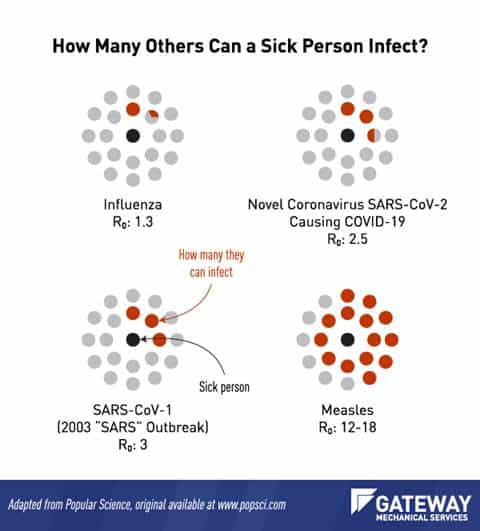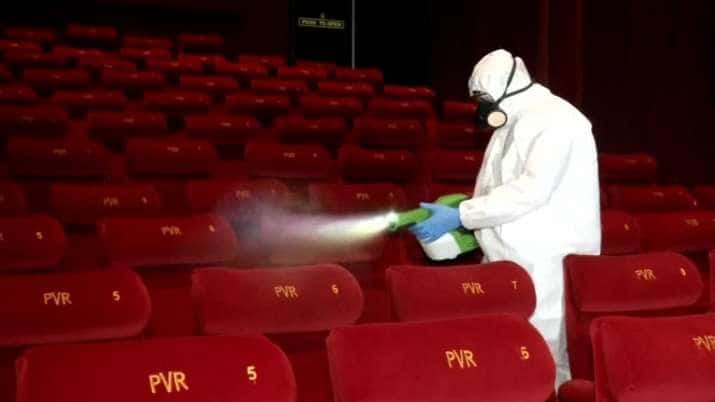Movies are a shared community entertainment experience. India is home to 6300+ single screens and 3000+ multiplex screens which contribute to billions in revenue for the Indian film industry. However, these cinema halls suffered a major setback during the COVID-19 pandemic. It is estimated the pandemic wiped off 80% of Indian cinema revenue! Fortunately, the coronavirus wave is at its lowest in the last few months, and cinema halls have been able to open their doors to the public.
However, most cinema halls are operating below their optimal capacity as they grapple with low footfall. A few major reasons are:
1. Risk of Infection
People are very apprehensive about their safety due to the risk of infection in cinema halls. If an infected person in the cinema halls sneezes or coughs, the respiratory droplets can stay suspended in the air or on the surface, putting both viewers and staff at high risk of SARS-CoV-2 which causes coronavirus. People who get infected from the infected person can become carriers of coronavirus and spread it to the community.

Image Credit
2. Indoor Air Pollution
Cinema halls are indoor spaces with poor ventilation. According to the US Environmental Protection Agency (EPA), the risk of health may be more due to exposure to indoor air pollution than the outdoors. If outside air that enters indoor space is insufficient, the pollutants can accumulate to a significant extent. These pollutants increase the buildup of carbon dioxide and reduce oxygen, cause unpleasant odor, and lead to health problems such as shortness of breath, dizziness, drowsiness, dry throat and eyes, etc. It may also worsen chronic colds, asthma, and other respiratory or lung diseases.
3. HVAC System Inefficiency
Cinema halls install HVAC systems to ensure a cool and comfortable environment air for the audience. However, studies highlight that HVAC systems can be the source of airborne infections. They are likely to trap airborne particles, dust, debris, mold, and pathogenic microorganisms inside the coils, filters, and ductwork if not cleaned regularly. HVAC circulates the air filled with these pollutants, causing respiratory and other health issues for people.
What Air Safety Measures Should Cinema Halls Take?

Visitors need assurance that cinema halls have taken utmost precautions for their safety. So, apart from enforcing the COVID-19 protocols (masking, hand hygiene, and social distancing) and disinfecting all surfaces, cinema halls also need to take the following additional preventive steps for people’s safety:
1. Adequate Ventilation
The American Society of Heating, Refrigerating, and Air-Conditioning Engineers (ASHRAE) recommends opening doors and windows to increase outdoor airflow and reduce or eliminate HVAC air circulation. Cinema halls must open all ventilation outlets when not screening the movie.
2. Use Air Cleaning Devices

Cinema halls can use high-quality, commercial-grade air-cleaning devices to improve indoor air quality. For example, multiplex chain PVR Cinemas has partnered with UFO Moviez to install a cinema-specific air sterilization device. This device emits negative ions and destroys protein covers of any virus or bacteria.
3. Invest in Maintenance of HVAC
Cleaning of HVAC filters, coils, and ductwork at regular intervals is highly recommended. This will remove the blockages, filter the airborne particles better, and improve airflow.
4. Install UVGI Technology for Air Purification
Ultraviolet Germicidal Irradiation (UVGI) is a disinfection technology that uses UV-C to deactivate and kill airborne pathogens and prevent cross infections. The UV-C light at 254 nm wavelength destroys the DNA/RNA of infectious pathogens, thereby preventing them from multiplying or reproducing.
A study undertaken by researchers at Columbia University Irving Medical Center found that UV-C can also kill more than 99.9% of coronaviruses found in airborne droplets.
ASHRAE recommends deploying UVGI in HVAC systems to improve indoor air quality and reduce airborne transmission of disease. The Air Movement and Control Association International, Inc. mentions that there are three primary ways of applying UV-C to protect HVAC surfaces and air streams against infectious agents – coil/surface irradiation, upper-room/air systems, and airstream disinfection.

